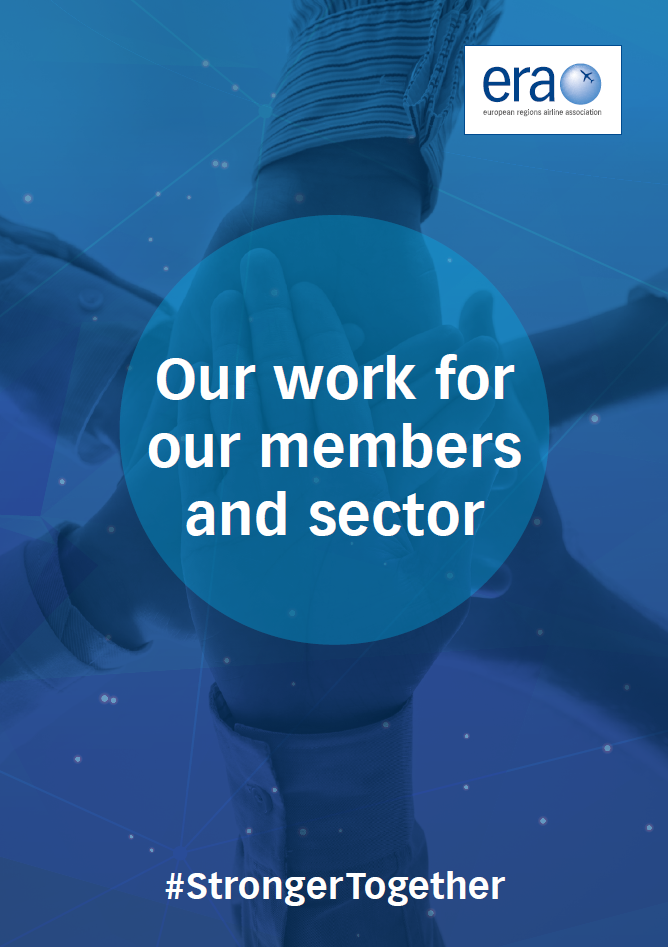Search Results
ERA Groups
ERA’s Groups provide unique opportunities for ERA members to directly influence ERA's policy and technical activities with the European Commission, European Parliament, EASA, Eurocontrol and the European Civil Aviation Conference as well and other government authorities and institutions. These informative and valuable meetings, focussing on industry affairs, air safety, operations, infrastructure and environmental and social activities, are open to representatives from ERA member companies and are the main channels of communication between the ERA Team and the members themselves.
ERA Membership Enquiry
For an informal discussion on member benefits, please call our Business Development team on +44(0)1276 856495 or complete the form below and click submit. Alternatively, please click here to download a membership pack.
Benefits of Membership
Being a member of ERA brings a range of benefits, check out our brand new membership information pack for more information on how ERA can help your business grow.
ERA members join for different reason but the feedback we have received is the great networking opportunities are the main reason, as well as being be kept informed of impending issues and industry news.
About ERA
What we do
Air transport within Europe provides economic value and meets social needs for the communities that it serves. The European Union's approach to regulation of the air transport industry repeatedly fails to take these benefits fully into account. In order to succeed in meeting the EU's overall economic and social goals of more and better jobs for Europe's citizens, the EU's legislators must increase their partnership with, and reduce their persecution of, the intra-European air transport industry.
ERA Board and Governance
ERA is governed by a Board of elected members, with representatives from across the diverse spectrum of ERA’s member companies, who meet together four times a year. ERA’s General Assembly of members meets each year at the Annual General Meeting – part of ERA’s General Assembly event. All member companies are encouraged to attend this meeting, where main member company representatives are able to vote on ERA’s finances, strategy and other key items.
The strategy and work programme approved at the Annual General Meeting guides the association’s work throughout the year.

